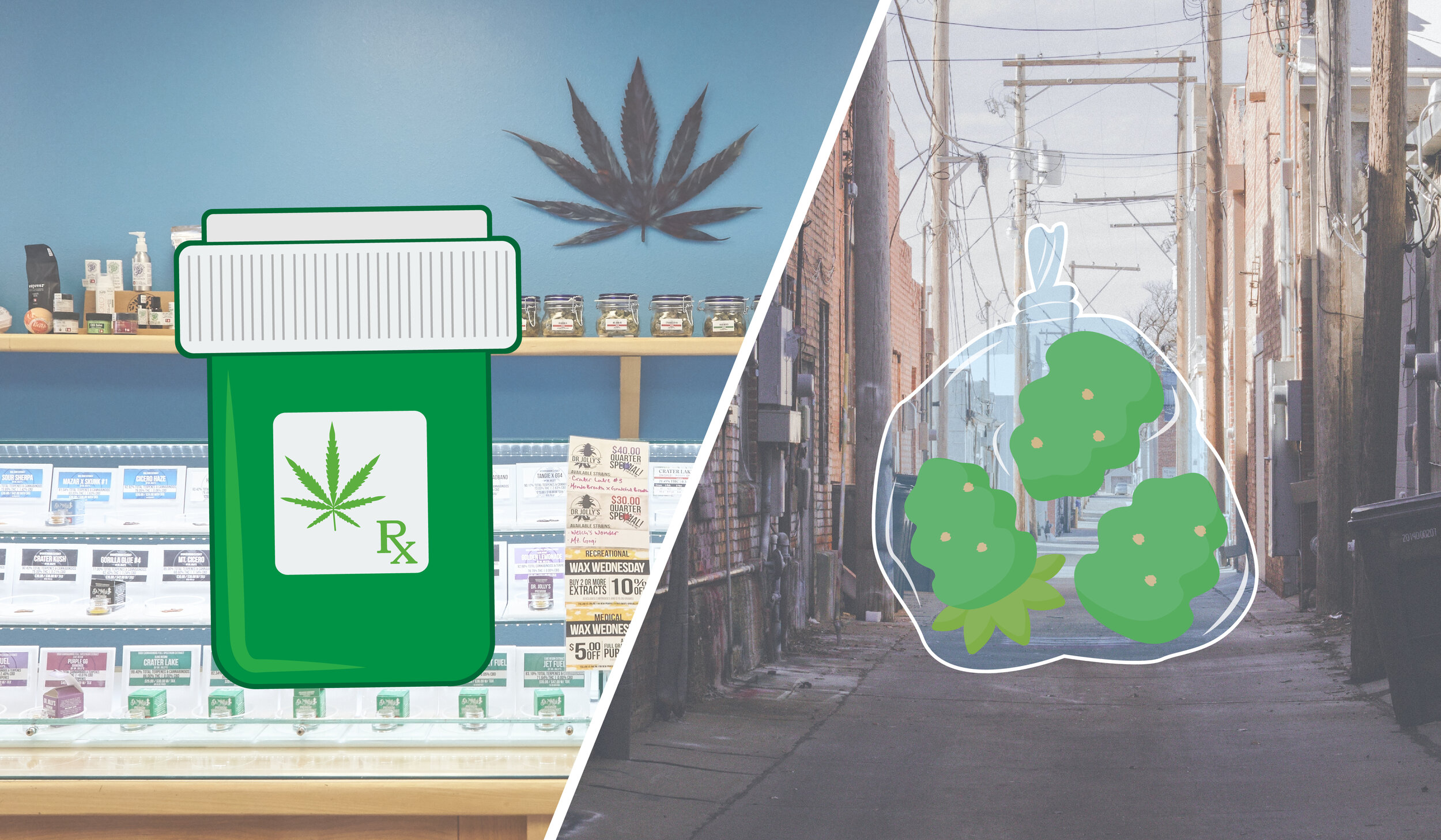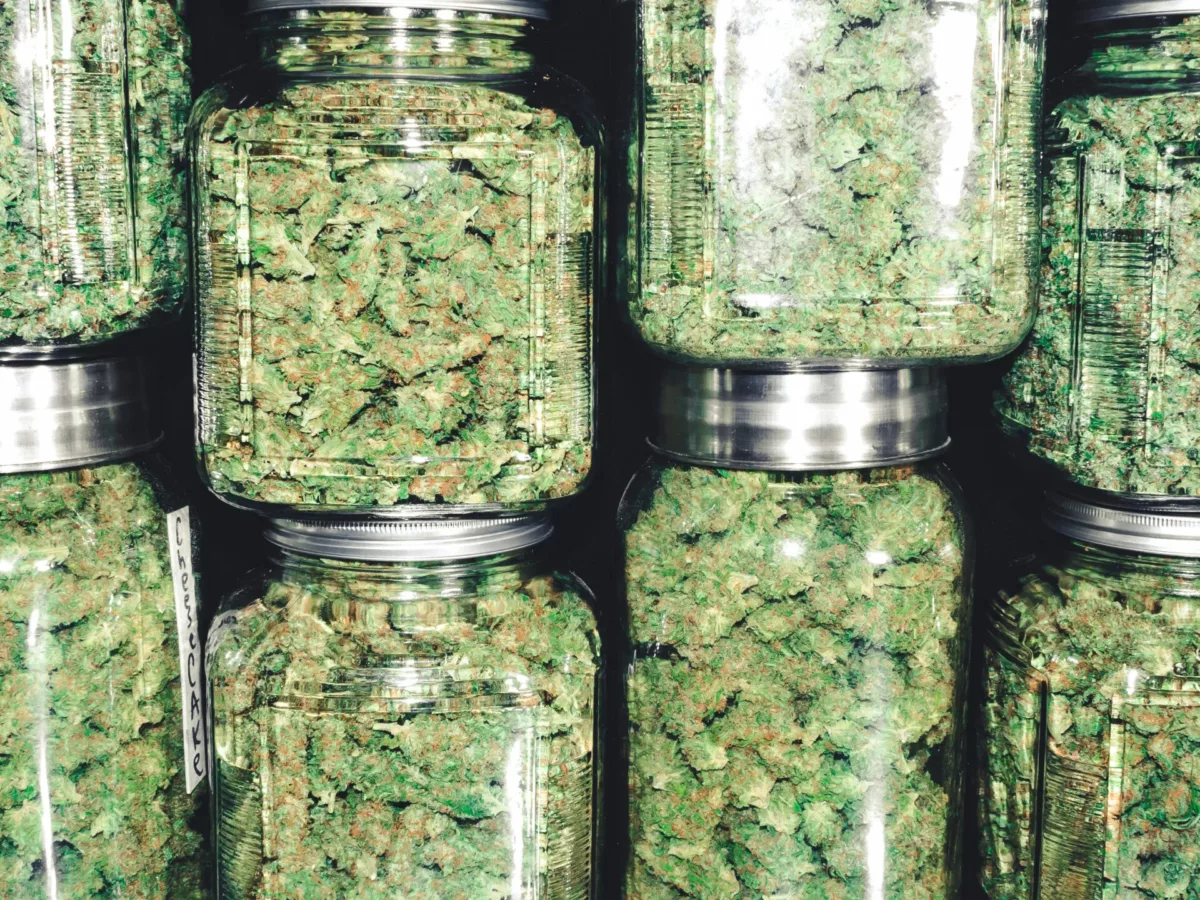The Maryland General Assembly is inevitably going to legalize cannabis possession and sales for adult-use, whether it be this year or next, and lawmakers will begin developing regulations for Maryland’s portion of a young, complicated and fragmented industry with an especially resilient illicit market.
The pros to legalization—additional tax revenue, reducing the incarcerated population, preserving police resources, and undoing damage caused by the racist war on drugs—outweigh the cons for the majority of Marylanders who support legalizing cannabis for adult-use.
Legalization requires lawmakers craft policies that fulfill promises of reducing cannabis-related prosecution and directing cannabis tax revenue towards communities that were unfairly impacted while somehow matching the convenience and price of the illicit market.
Delegate Jazz Lewis (D) filed a bill in the House of Delegates that legalizes cannabis in Maryland for use by adults over the age of 21 that directs the tax revenue to Black and brown communities most harshly persecuted during prohibition; releases those still incarcerated for cannabis; and creates a start-up fund to aid members of these communities who want to enter the cannabis industry.
Lewis explained most people know someone who was stopped by law enforcement and cited (or charged) for cannabis possession. These stops and arrests, Lewis said, are all “because a police officer, doing their job, was on a fishing expedition.”
Members of law enforcement plan to testify in favor of his bill, Lewis said, because “they don’t think they should be wasting their time harassing teenagers and young people, generally, for limited marijuana possession. They signed up to prosecute and go after real bad guys.”
Maryland decriminalized ten grams of cannabis in 2015 and has a growing medical cannabis industry. Legalizing cannabis should, in theory, reduce low-level street sales of cannabis by providing customers with a legal alternative. Though rare, the cash-only and underground nature of the illicit market can make its participants potential targets. According to a Department Of Justice press release from earlier this year, in February 2019, a Baltimore man was shot and killed after attempting to rob a low-level cannabis dealer—who is now serving a 20-year minimum sentence for murder—at a gas station on the corner of Wylie Avenue and Park Heights Avenue.
Eric Sterling, a retired criminal defense lawyer with a career in creating drug policy, was an original appointee by then-Governor Martin O’Malley Maryland’s first medical cannabis commission in 2013 and was a principal author on Maryland’s first medical cannabis regulations.
“We see it today with all illegal drugs. Any outlaw product or any illegal product which is being sold for cash creates the risk of robbery,” Sterling said. “[Legalization] is going to reduce the susceptibility of people who are selling cannabis for being robbed if they are selling cannabis in a legal establishment which provides security.”
However, Sterling warns that legalizing cannabis for adult-use and assuming customers will opt to purchase legally from dispensaries is not enough to combat illicit sales. Instead, lawmakers must provide an easy route for existing illicit sellers to enter the legal market—and bring their customers with them.
“It’s a question of convenience, pricing and trust,” Sterling said. “If I’ve been getting my pot from my friend ‘so-and-so’ for a number of years, why should I stop?”
Sterling cites evidence from other legal states and a number of market factors including lower sales cost, lack of complex and expensive regulatory standards, and a loyal customer base that provide illicit dealers with enough incentive to remain in the illicit market.
Lawmakers are hoping to learn from some of the mistakes made by the MMCC when crafting regulations for medical cannabis sales in 2013 which involved a confusing licensing process and imposed strict (and expensive) compliance standards on medical cannabis businesses, virtually closing the market to anyone without existing capital or wealthy investors to fund their start-up.
“Those regulations were deeply flawed,” Sterling said.
Sterling was one of the authors of the original MMCC regulations, stating that himself and those involved in the writing process were “deeply misinformed and uneducated about what made sense.”
Almost all of the original businesses licensed to grow, process or sell medical cannabis in Maryland had owners who were white, wealthy, and well-connected—and now, Sterling said, “we are living, in part, with the consequence of that.”
Maryland NORML Executive Director Luke Jones agreed that legalizing cannabis entirely will not eliminate the criminal market. He supports making the adult-use market accessible to illicit sellers seeking to legitimize.
“We’re either going to have to send police after the existing market or build on-ramps for people to get out of the illicit market completely,” Jones said. “ We really need to think about what our public policy objectives are.” Jones said.
Del. Lewis’ legislation builds some of these “on-ramps” into the adult-use industry by establishing a social equity start-up fund to assist minority business owners and those without start-up capital to enter the cannabis industry. Lewis’ bill also permits micro-cultivation, allowing businesses to grow and sell their own product which is a privilege reserved for vertically-integrated, dual-licensed corporate entities in Maryland’s medical industry who can sell their own cannabis at prices that non-corporate dispensaries cannot match.
However, no state law or regulation can prevent—or even reduce—the illicit smuggling of cannabis from legal states into non-legal states without increasing use of law enforcement and abandoning the goal of reducing cannabis-related criminal prosecution. Only through federal decriminalization and the establishment of a unified national market will the illicit market begin to dissipate.
Currently, a national cannabis company who holds a license to sell cannabis for adult-use in both California and Oregon, for example, cannot share products even if they are owned by the same company. Because federal law prohibits interstate sale and transport of cannabis, all products sold in a state must be grown or processed in that state, medical or recreational.
The Rutgers Center of Alcohol and Substance Use Studies reported that California produces five times more cannabis than the amount of cannabis legally consumed with the remainder of supply entering the illicit market where farmers can turn sell their surplus in bulk for a profit to buyers in non-legal states across the country. This means pricing and supply varies drastically from state to state, with farmers in Oregon or California selling off their surplus to the illicit market which meets the demand of non-legal, untaxed markets.
Meanwhile, Maryland’s medical industry struggles to produce enough Maryland-grown cannabis to meet growing demand.
Decriminalization on the federal level would allow one states’ cannabis surplus to meet another states’ demand while simultaneously stabilizing market prices and slowing product flow into the illicit market. Cultivators would also be permitted to sell products across state lines which would reduce demand for illicit products in non-legal states by expanding access to legal alternatives.
The likelihood of Congress decriminalizing cannabis increased significantly when Democrats won both Georgia run-off elections in January and flipped the senate majority. Decriminalization passed in the house last year but the bill was dead on arrival in what was a Republican-controlled senate.
Del. Lewis said that if lawmakers want to begin repairing police and community relations in the U.S., ending the prohibition of cannabis is an integral part of that conversation.
“The collateral consequences of not [decriminalizing] federally are huge. Not only are people still being incarcerated for cannabis use…but this is one of the leading reasons why a lot of Black and brown communities distrust the police,” Lewis said.
Putting aside industry complexities, legalizing cannabis for adult-use at the state level in Maryland will reduce the number of people entangled with the criminal justice system for possession of cannabis for personal use, a substantial victory for advocates of both cannabis and criminal justice reform.
MD NORML’s Jones said the General Assembly may be preoccupied this session which is being held virtually due to COVID-19.
“The state is confronting challenges to the likes of which we have not seen in generations. They have to vaccinate everybody and stabilize public education…and so cannabis legalization may not happen until the next General Assembly,” Jones said.
Jones added that the slim chance of the General Assembly voting on cannabis legalization in 2021 depends on voter interest and advocacy at Maryland’s cannabis Lobby Day on Feb. 9, 10 and 11.
Photo illustration by Kathy Wyche






